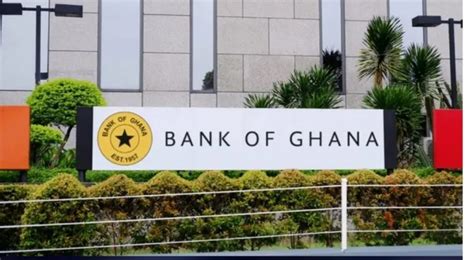
Bank of Ghana to Unleash $1.15 Billion in FX Auctions to Steady the Cedi
Central bank opens twice-weekly spot auctions via its Domestic Gold Purchase Programme to inject liquidity, improve price discovery, and tamp down volatility in the forex market.
Accra, Ghana – October 10, 2025
In a bold move to stabilise the Ghana cedi, the Bank of Ghana (BoG) has announced plans to inject US$1.15 billion into the foreign exchange (FX) market starting October 2025.
Governor Dr. Johnson Pandit Asiama, speaking to heads of commercial banks in Accra, revealed that the intervention will be implemented under the Domestic Gold Purchase Programme.
The FX sales will occur on a spot basis in twice-weekly, price-competitive auctions open to all licensed banks, with no special conditions or earmarking for particular institutions.
“Beginning October 2025, the Bank of Ghana will commence foreign exchange (FX) intermediation … with plans to sell up to US$1.15 billion … these sales will be conducted on a spot basis through twice-weekly, price-competitive auctions open to all licensed banks.”
The BoG’s aim is to enhance price discovery & interbank depth by deepen the interbank FX market, making it more transparent and reducing the dominance of opaque bilateral trades.
By supplying liquidity directly, the central bank hopes to smooth sharp fluctuations in the cedi’s value thereby effectively Manage volatility.
Also, the BoG retains flexibility to alter monthly auction volumes depending on market conditions.
In addition to FX intervention, BoG is pushing for broader financial sector support. It has called on commercial banks to increase lending to small and medium enterprises (SMEs) and agribusiness, promote export-oriented financial instruments, and use local insurers for import coverage to retain foreign currency domestically.
The decision has drawn praise from Ghana’s importers and exporters. The Importers and Exporters Association of Ghana (IEAG) described the injection as a “game changer,” arguing it will boost forex liquidity, stabilise trade operations, and improve confidence among business stakeholders.
IEAG also noted that with greater FX availability, businesses can better plan and hedge, while reducing delays and extra costs associated with forex shortages.
While the injection is intended to stabilise the cedi, such large-scale FX interventions may strain Ghana’s foreign reserves. Analysts caution that frequent interventions risk eroding reserve buffers, making the country vulnerable to external shocks.
Critics argue that FX fixes alone cannot cure deeper structural issues such as reliance on imports, low export diversification, and capital flight. Overreliance on central bank interventions without complementary reforms may yield only temporary relief.
Excessive central bank activity in FX markets can distort pricing signals, encourage speculative behavior, and reduce the incentive for market participants to conduct hedging or seek efficient foreign currency sourcing.
Some international financial institutions (e.g. IMF, World Bank) have historically cautioned against heavy-handed FX market interventions, favoring more market-based adjustments. Reports suggest that this injection may prompt tensions with these bodies over macroeconomic policy direction.
The BoG has earlier attributed recent improvements in inflation and currency stability to its Domestic Gold Purchase Programme, which buys gold from local miners in cedi and helps diversify reserve holdings.
In August 2025, Governor Asiama noted that an appreciating cedi contributed to a near 50 percent drop in remittances, raising concerns about the channeling of foreign funds into the domestic market.